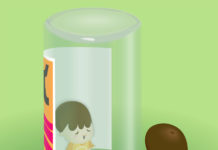The Reckoning in Psychiatry Over Protracted Antidepressant Withdrawal
Medically-induced harm—affecting tens of millions of people worldwide—has taken the field decades to take seriously.
How Academic Psychiatry Minimized SSRI Withdrawal
If academic psychiatry is evidence-based, why did it take two decades to recognize SSRI withdrawal as widespread and chronic among patients?
People Diagnosed with Bipolar Disorder at Increased Risk for Parkinson’s
Increased Parkinson's risk could be related to lithium, antipsychotic, and antiepileptic drug use.
Children Taking ADHD Drugs More Likely to Take Antidepressants as Teens
Adhering to a commonly prescribed medication for ADHD in children is associated with higher chances of being prescribed antidepressants in adolescence.
Study Identifies Psychiatric Patients at Greatest Risk of Coercion
In an effort to reduce coercion, researchers isolate associated factors including age, relationship status, location, and diagnosis.
Researchers Ask, ‘Why Do Antidepressants Stop Working?’
An international group of researchers, including several with financial ties to manufacturers of antidepressants, explore possible explanations for why long-term users of antidepressants become chronically depressed.
The Psychological Effects of the Zero-Tolerance Immigration Policy
Journal releases a compilation of articles detailing how zero-tolerance policy may impact mental health.
About 1 in 100 Children Treated with Ritalin Experience a Serious Adverse Event
A recent Cochrane review has found that serious adverse events occur for about 1% of children and adolescents treated with Ritalin.
Hallucinations Reported as Side Effect of ADHD Medication
Hallucinations and other psychotic symptoms have been reported after methylphenidate (Ritalin) treatment for ADHD.
Review of Pediatric Antidepressant Studies Finds Evidence of Benefit Lacking
Review of pediatric antidepressant studies finds the vast majority are negative on primary outcomes and an increased risk for suicidality.
Review Finds Lack of Evidence for Antidepressants in Treatment of Insomnia
Results from a Cochrane meta-analysis find that the common practice of prescribing antidepressants to treat insomnia is not supported by current evidence.
Rethinking Madness and Medication: Researcher Discusses Psychiatric Drug Withdrawal and Survivor Movements
New understandings of medication and withdrawal experiences warrant rethinking conceptualizations of health and “madness."
Psychiatric Diagnosis Can Lead to Epistemic Injustice, Researchers Claim
A discussion of the role of epistemic injustice in the experiences of patients diagnosed with psychiatric disorders.
Study Explores Meanings of Bipolar Disorder to Those Diagnosed
The narratives about Bipolar Disorder promoted by drug companies may influence how those diagnosed understand themselves.
Vitamin B6 Effective in Reducing Antipsychotic Induced Akathisia
A recent RCT showed that vitamin B6 is as effective as propranolol for the treatment of akathisia.
Anticholinergic Medications Linked to Dementia Similar to Early Alzheimer’s
A new study, published in the Journal of Clinical Psychiatry, investigates the effects of anticholinergic medications, such as antidepressants and antipsychotics, on cognition in older adults diagnosed with schizophrenia.
Intergenerational Impact of Adverse Childhood Experiences
The daughters of children evacuated from Finland during World War II show an increased number of psychiatric hospitalizations.
The Need to Address Suicide in Prisons
Rates of suicide in prison are significantly higher than in the general population.
Police Violence Victims at Increased Risk of Psychotic Symptoms
Researchers examine links between police victimization and psychotic symptoms in a topical new study.
Scientists Clarify Risks of Augmenting with Antipsychotic Medications for Depression
The researchers found that while antipsychotic drugs may be slightly more effective than alternative antidepressants, they come with a much higher side effect burden.
Study Privileges the Voices of Persons Hospitalized Against Their Will
How people are treated after being hospitalized can either help them to overcome the traumatic effects of coercion or make them worse.
Review Finds Little Evidence that Electroconvulsive Therapy is Effective for Depression
Researchers examined the dearth of support for Electroconvulsive therapy (ECT) for depressive symptoms in light of studies detailing the associated risks.
Inappropriate Use of Antipsychotics on Adults with Intellectual and Developmental Disabilities
One-third of adults with an intellectual or developmental disability are dispensed antipsychotics, despite having no existing psychiatric diagnosis.
Criticism of Coercion and Forced Treatment in Psychiatry
A recent editorial, published in BMJ, argues there is an increase in coercive measures in psychiatry that are damaging to individuals diagnosed with mental illness.
Ethical Failings in Experimental Drug Safety Trials
Leading human subjects ethics researcher questions exploitation of uninsured minorities in experimental drug trials.

































